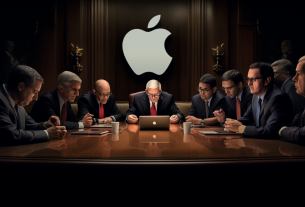In a world increasingly conscious of environmental sustainability, Procter & Gamble (P&G), a titan in the consumer goods industry, confronts a pivotal moment. The company, renowned for its vast array of household brands, faces mounting pressure to overhaul its environmental policies. This comes in the wake of shareholder dissatisfaction over the company’s handling of forest resources, a critical component of its supply chain.
P&G’s shareholders have sent a clear message, with a significant number expressing their concern through their votes. They are urging the company to take immediate action to address the deforestation and degradation linked to its product manufacturing. The shareholders’ stance reflects a broader societal shift towards environmental accountability, where the ecological footprint of a company is scrutinized as closely as its financial performance.
The company’s reliance on forest-derived materials, particularly for products like toilet paper and paper towels, has placed it at the center of a contentious debate. The environmental impact of such practices has drawn criticism from various stakeholders, including environmental advocacy groups, who argue that P&G’s current measures are insufficient to protect critical forest habitats.
P&G now stands at a crossroads, with the opportunity to lead by example in the corporate world by adopting more sustainable and responsible sourcing methods. The company’s response to these challenges will not only shape its environmental legacy but also potentially redefine industry standards. As consumers increasingly favor brands that prioritize the planet, P&G’s actions will be closely watched, with the potential to influence purchasing decisions and brand loyalty.



